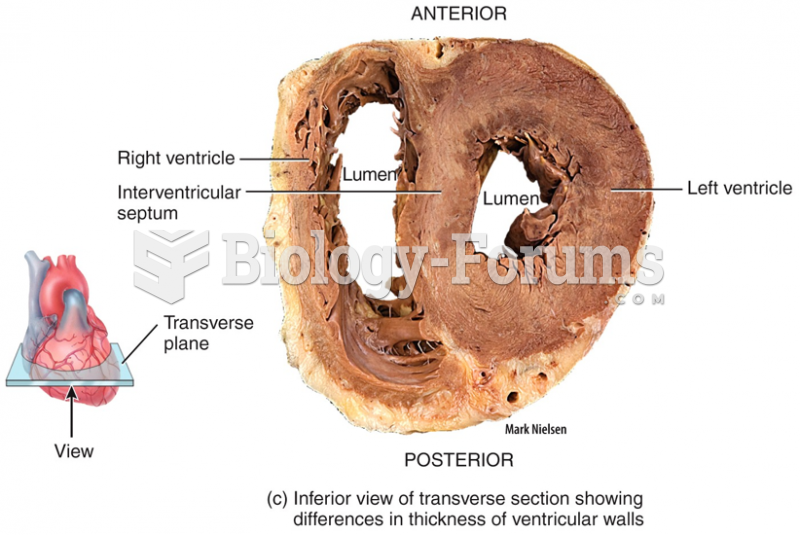|
|
|
On average, someone in the United States has a stroke about every 40 seconds. This is about 795,000 people per year.
In the United States, congenital cytomegalovirus causes one child to become disabled almost every hour. CMV is the leading preventable viral cause of development disability in newborns. These disabilities include hearing or vision loss, and cerebral palsy.
In the United States, an estimated 50 million unnecessary antibiotics are prescribed for viral respiratory infections.
Women are 50% to 75% more likely than men to experience an adverse drug reaction.
The use of salicylates dates back 2,500 years to Hippocrates’s recommendation of willow bark (from which a salicylate is derived) as an aid to the pains of childbirth. However, overdosage of salicylates can harm body fluids, electrolytes, the CNS, the GI tract, the ears, the lungs, the blood, the liver, and the kidneys and cause coma or death.







